The 18 Worst Foods To Eat When You’re Sick, According To Medical Experts
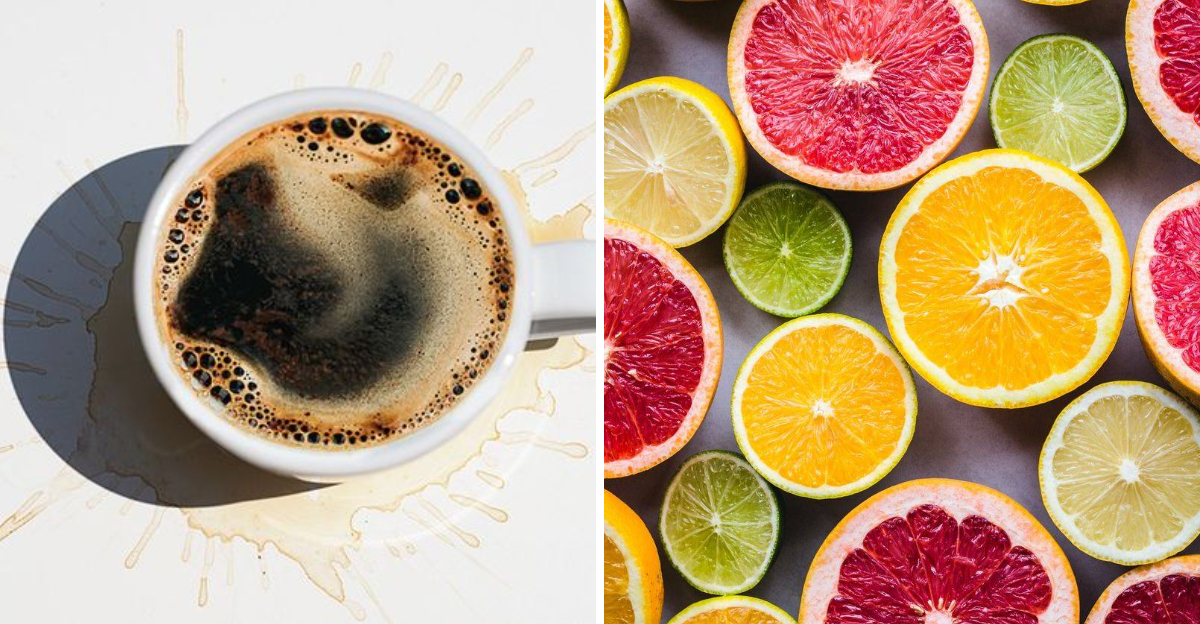
When you’re feeling under the weather, the food you consume can either aid your recovery or exacerbate your symptoms. While certain foods are known for their healing properties, others can hinder your body’s ability to recover. From irritating your throat to upsetting your stomach, these foods should be avoided when you’re not at your best. In this blog post, we’ll explore the 18 worst foods to eat when you’re sick, as recommended by medical experts. By steering clear of these items, you can help ensure a quicker and more comfortable recovery.
1. Dairy (for some people)
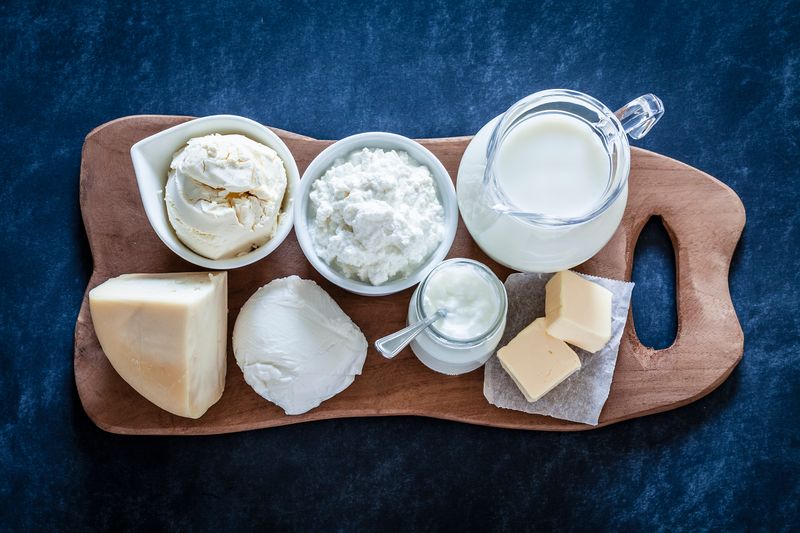
For some individuals, dairy products like milk and cheese can thicken mucus, rather than increase its production. This thickening effect can worsen congestion symptoms, particularly during a cold or sinus infection.
While not everyone experiences this, those who do should be cautious. Opting for dairy alternatives may help alleviate discomfort. Avoiding dairy could make breathing easier, reduce throat irritation, and promote a more restful night’s sleep.
Medical experts suggest listening to your body’s response to dairy when ill, as personal experiences with dairy vary significantly.
2. Sugary Drinks
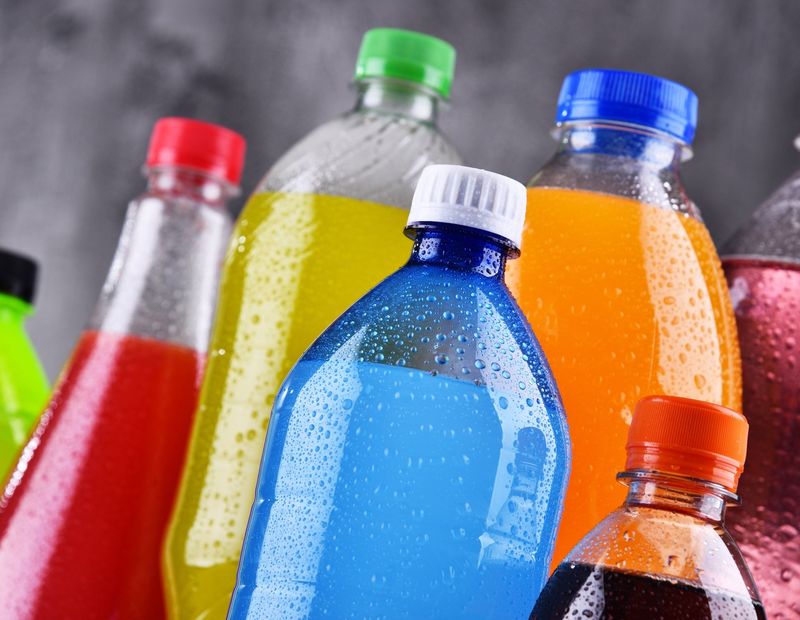
Sugary drinks, including sodas, sweet teas, and sports drinks, can be detrimental when you’re feeling unwell. These beverages suppress the immune system and heighten inflammation, exacerbating symptoms rather than relieving them.
The high sugar content creates an environment conducive to bacterial growth. Staying hydrated with water or herbal teas is a far better choice.
Choosing beverages that support your immune function rather than hinder it will aid in recovery. Remember, what you drink is just as important as what you eat when you’re sick.
3. Fried Foods
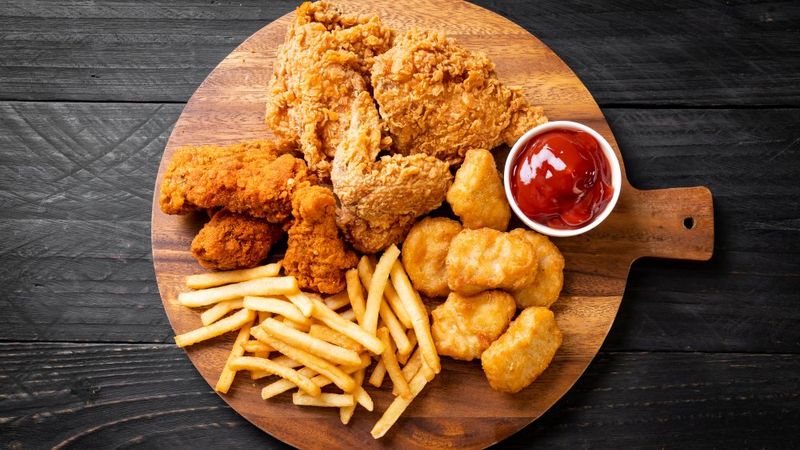
Fried foods, known for their greasy nature, can be particularly hard on the stomach. When you’re experiencing digestive issues, these foods may trigger nausea or indigestion, making you feel worse.
Consuming fried foods can slow down your body’s healing process. Instead, opt for lighter, easily digestible foods to support recovery.
When combating illness, it’s important to be mindful of how foods affect your stomach and overall well-being. Fried foods are best avoided to promote faster recovery and comfort.
4. Spicy Foods (with caution)
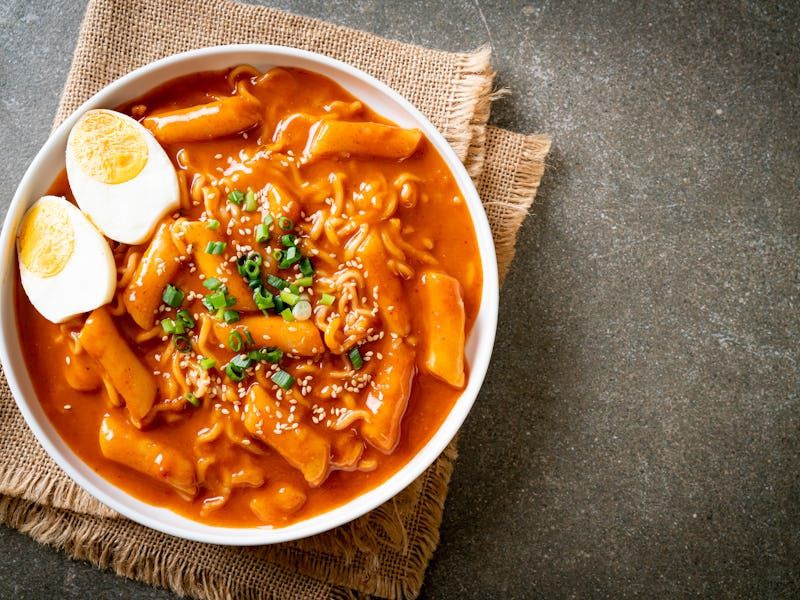
Spicy foods can be a double-edged sword when you’re sick. On one hand, they might help clear your sinuses. On the other, they can irritate a sore throat, cause heartburn, and upset an already sensitive stomach.
For those with digestive issues, skipping the heat is wise. If congestion is your primary concern, a mild spice might assist in clearing nasal passages.
Ultimately, your comfort level with spice and specific symptoms should guide your choices. Moderation and listening to your body’s signals are key when considering spicy foods.
5. Alcohol
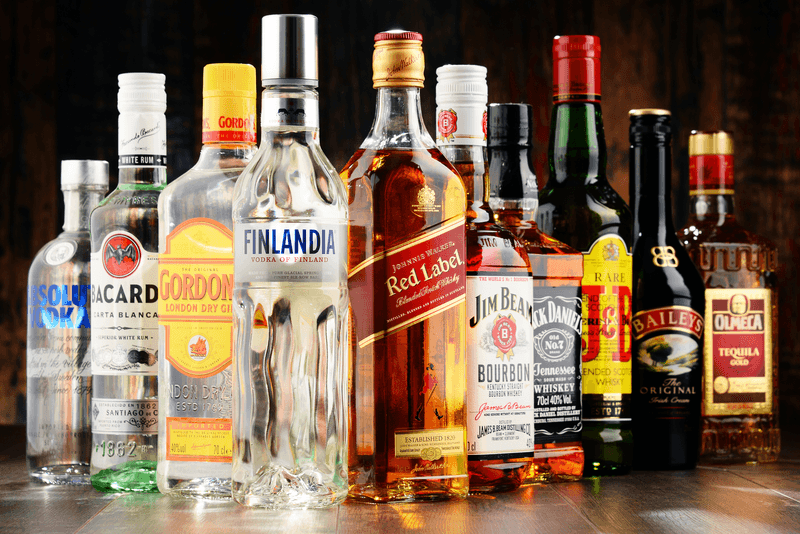
Alcohol is notorious for its dehydrating effects, making it a poor choice when you’re trying to recover from illness. It not only dehydrates but also interferes with the body’s immune function.
Additionally, alcohol can disrupt sleep patterns, which are crucial when your body is in healing mode. Avoiding alcohol means allowing your body to focus its energy on recovery, rather than processing toxins.
For a healthier recovery, choose hydration over intoxication. Water, herbal teas, and broths are much better choices for the sick.
6. Caffeine (too much of it)

While a little caffeine might be tolerable, too much can lead to dehydration and stomach upset, especially when you’re already feeling sensitive. Coffee, in particular, has diuretic properties that can exacerbate dehydration.
If you’re accustomed to caffeine, consider reducing your intake temporarily. Opt for herbal teas or decaffeinated options to stay hydrated and support healing.
Balancing caffeine intake is essential when combating illness, as hydration is key to recovery. Listen to your body and adjust your consumption as needed.
7. Citrus Fruits (if your throat’s raw)
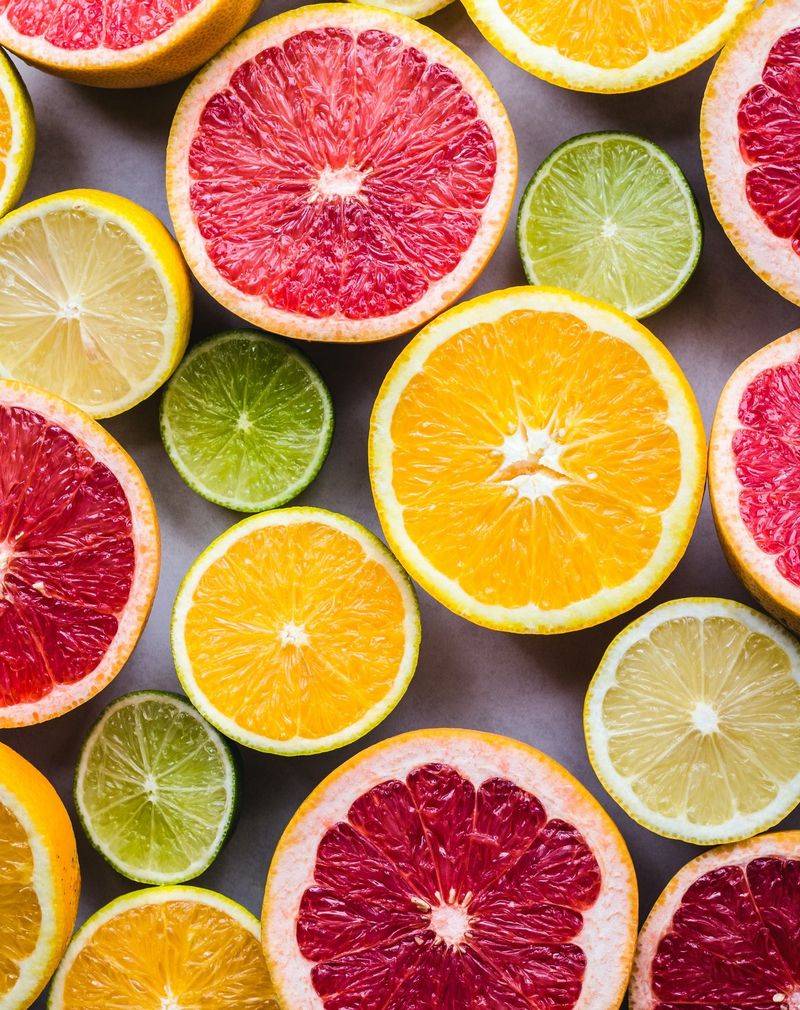
Citrus fruits like lemons, oranges, and grapefruits are rich in vitamin C, beneficial for boosting the immune system. However, their acidity can burn a raw or sore throat, causing discomfort rather than relief.
For those with throat irritation, it’s wise to be cautious with citrus. Instead, consider alternatives like vitamin C-rich bell peppers or supplements.
Your body’s response to acidity can vary, so pay attention to discomfort levels. Choosing less acidic options can result in a more soothing experience when dealing with a sore throat.
8. Processed Meats
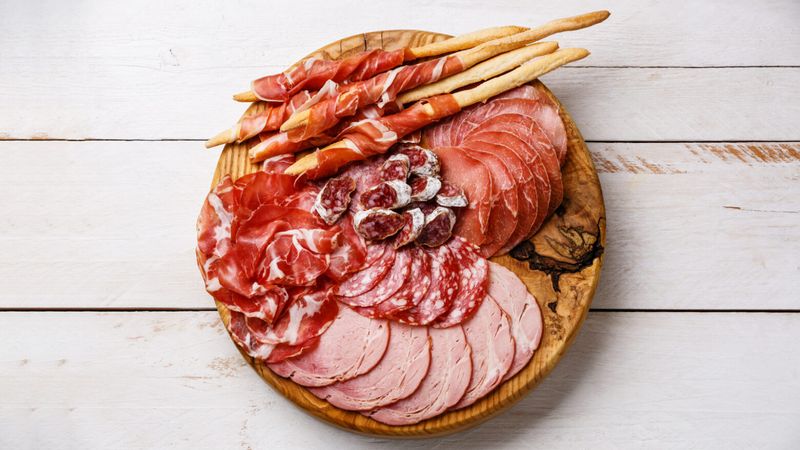
Processed meats, including bacon, sausage, and deli selections, are typically high in salt and preservatives. Consuming these during illness can trigger inflammation, complicating recovery.
A diet heavy in processed meats can strain an already overworked immune system. Opt for lean, unprocessed proteins to support healing.
Focusing on whole foods can facilitate a smoother recovery journey. When sick, nourishing your body with clean, nutritious options is crucial for well-being and immune function.
9. Ice Cream

Ice cream, although a comfort food for many, is cold, sugary, and dairy-based—three factors that can hinder recovery. The coldness can further irritate sore throats, while sugar may suppress immune function.
For those with congestion, dairy can thicken mucus, making breathing more difficult. Consider soothing alternatives like warm broths or herbal teas.
When sick, choosing foods that aid rather than impede recovery is key. Ice cream may be tempting, but it’s not the best choice for your body’s healing process.
10. Pastries and Sweets

Pastries and sweets are quintessential comfort foods, but their refined sugar content can feed harmful bacteria and upset gut health. This imbalance can impede immune function, delaying recovery.
While the appeal of sugary treats is strong, opting for healthier snacks is wiser. Consider fruit or yogurt for a more balanced sweetness.
Supporting your body’s healing through mindful eating can make a significant difference. Choosing nutrient-rich alternatives over sugary indulgences aids in maintaining health and wellness during illness.
11. Energy Drinks
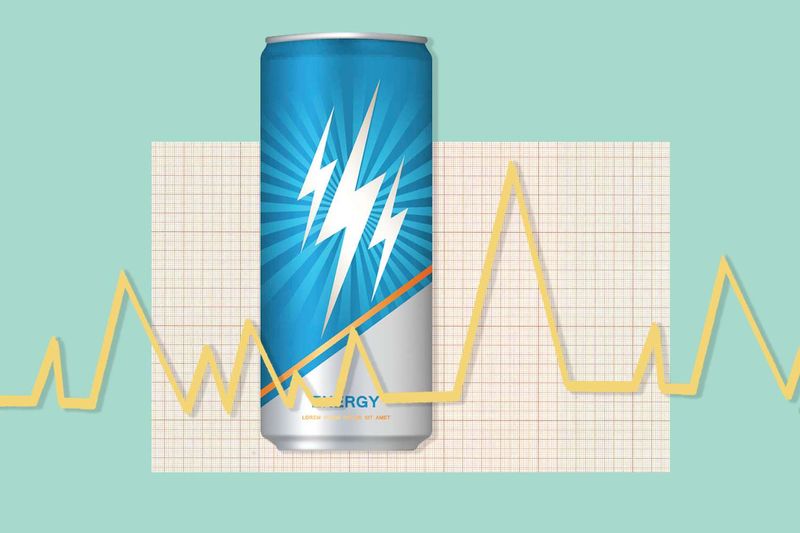
Energy drinks promise a quick energy boost, but they come with a significant downside. Loaded with caffeine and sugar, they can cause dehydration and provide only temporary relief.
The energy spike is often followed by a crash, further taxing your body’s resources. Opt for hydrating beverages that nurture rather than stress your system.
Prioritizing long-term wellness over short-term stimulation is crucial when sick. Energy drinks might be alluring, but they don’t support your body’s natural healing processes.
12. Chips and Crackers
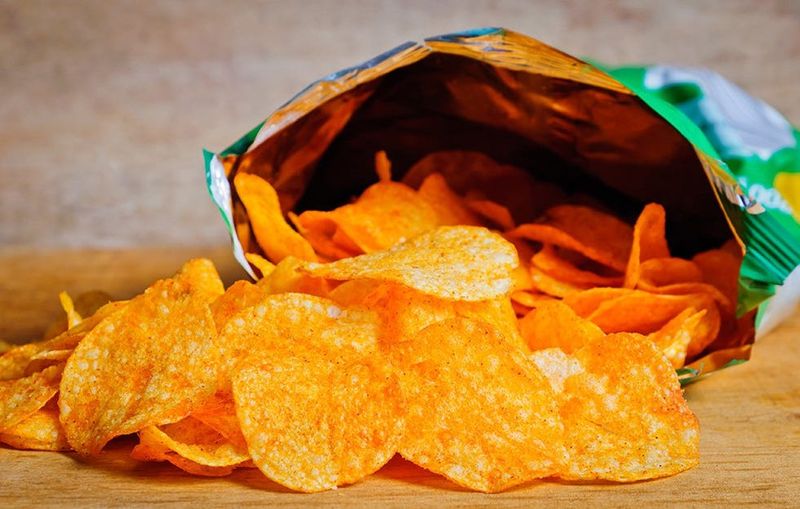
Chips and crackers, while convenient, are dry and salty—factors that can lead to dehydration and throat irritation. When you’re sick, your body requires hydration and soothing nourishment.
Reaching for these snacks can exacerbate symptoms rather than offer comfort. Opt for hydrating and nutrient-rich choices like soups or smoothies.
Supporting your recovery with the right snacks can make a significant difference. Being mindful of your choices during illness promotes a swifter and more comfortable healing process.
13. Tomato-Based Sauces
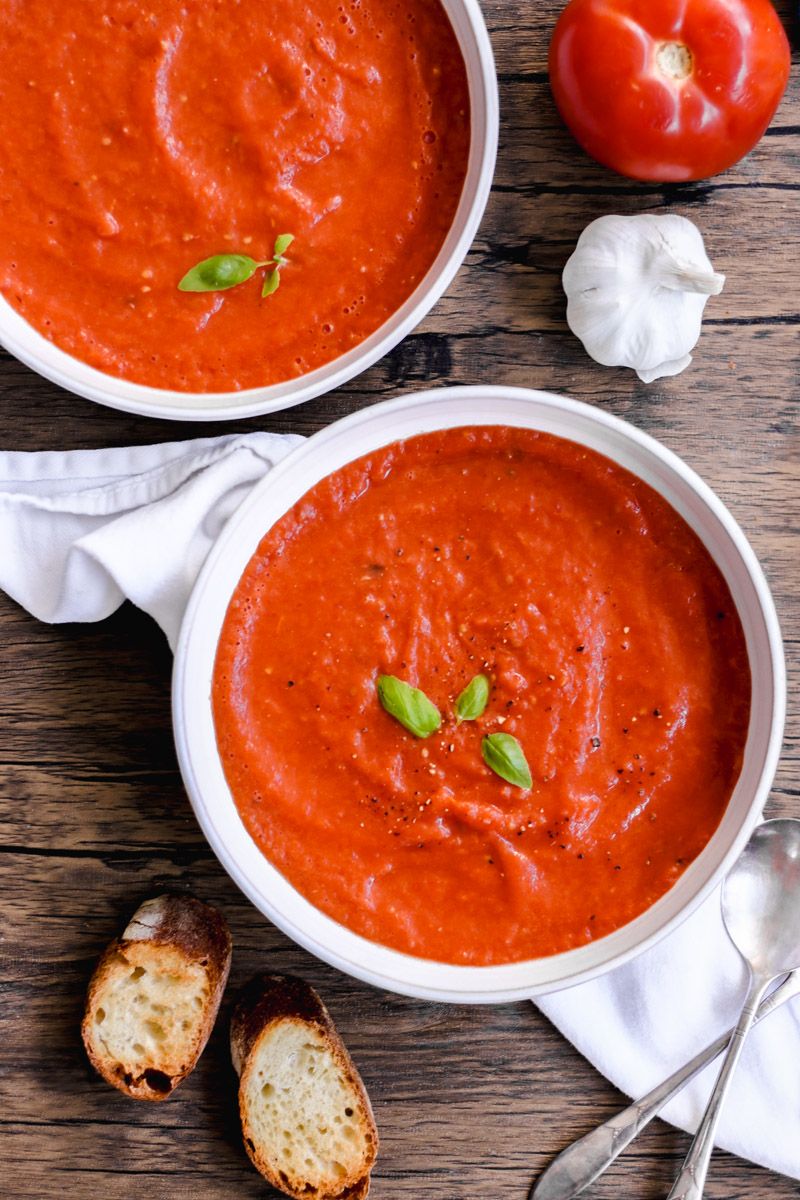
Tomato-based sauces, though flavorful, are acidic and can irritate the stomach lining or throat, especially during a cold or flu. The acidity can exacerbate symptoms like heartburn or sore throat.
When experiencing illness, it’s beneficial to choose less acidic foods that offer comfort and relief. Consider cream-based or broth-based alternatives.
Your body’s response to acidity can guide your choices, ensuring a more pleasant recovery. Opting for non-tomato based options can ease digestive discomfort.
14. Raw Veggies
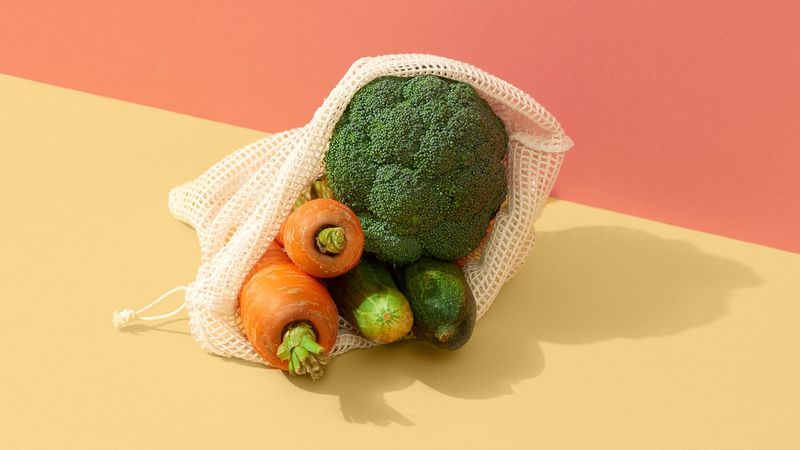
Raw vegetables are typically a healthy choice, but their fibrous nature can be hard to digest when dealing with a stomach bug or low appetite. Cooking or steaming vegetables makes them gentler on the digestive system.
During illness, opting for easily digestible foods can aid in comfort and recovery. Steamed carrots or soft-cooked greens are excellent choices.
Listening to your body’s signals about what feels good to eat is crucial. Emphasizing comfort over strict dietary habits can facilitate a smoother healing process.
15. Popcorn

Popcorn might be a favorite snack, but its texture can scratch a sore throat, making it an unpleasant choice when sick. Additionally, excessive butter or salt can add to throat irritation.
Choosing softer, less abrasive snacks is beneficial for throat comfort. Opt for gentler foods that don’t aggravate symptoms.
Mindful snacking can enhance your recovery experience. Avoiding popcorn ensures your throat remains unharmed, promoting a more soothing healing period.
16. Milkshakes

Milkshakes, though tempting, combine cold, dairy, and sugar—elements that may exacerbate congestion and inflammation. The coldness can further irritate sore throats, while sugar can suppress the immune system.
When seeking comfort, consider warm beverages or nourishing broths. Choosing alternatives that support rather than hinder recovery is wise.
Milkshakes may offer momentary pleasure but don’t align with your body’s healing needs. Opt for choices that prioritize wellness during illness.
17. Granola Bars
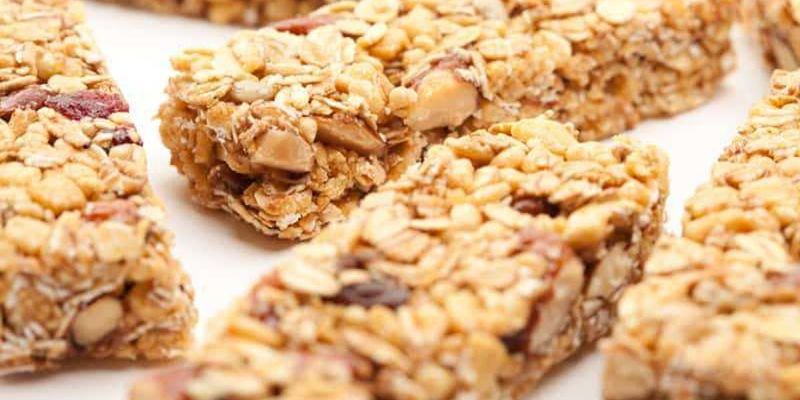
Granola bars, often seen as a healthy snack, can be packed with sugar and additives, making them akin to candy bars in disguise. These ingredients can compromise gut health and immune function, delaying recovery.
Selecting snacks with less sugar and more natural ingredients is beneficial. Nuts or fruit offer better nutritional value.
Focusing on wholesome options during illness supports your body’s healing journey. Granola bars may be convenient but aren’t the best choice for recovery.
18. Anything Super Greasy
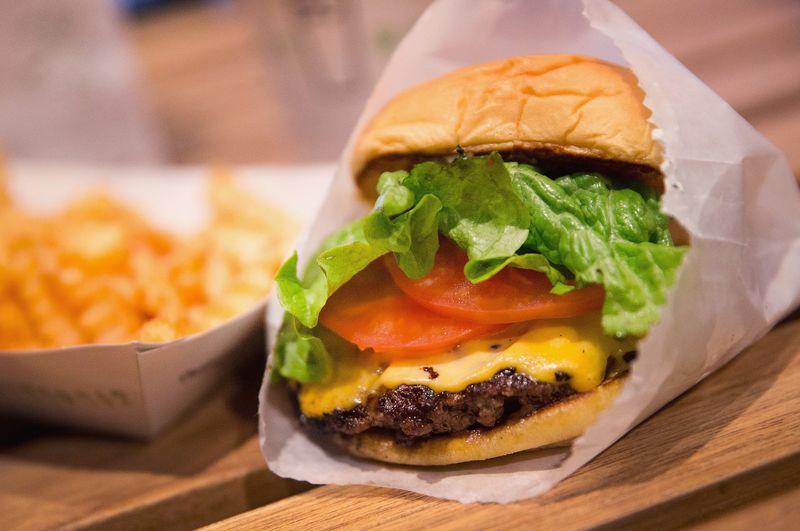
Super greasy foods, from pizzas to fast-food burgers, place unnecessary strain on your digestive system when you’re unwell. These foods can weigh you down, making the recovery process longer and more arduous.
Opting for lighter, healthier meals can support your body’s healing mechanisms. Foods that are nutrient-dense yet gentle on the stomach are ideal.
When sick, prioritizing foods that aid rather than hinder recovery can hasten the healing process. Greasy meals are best avoided for a speedy recuperation.
